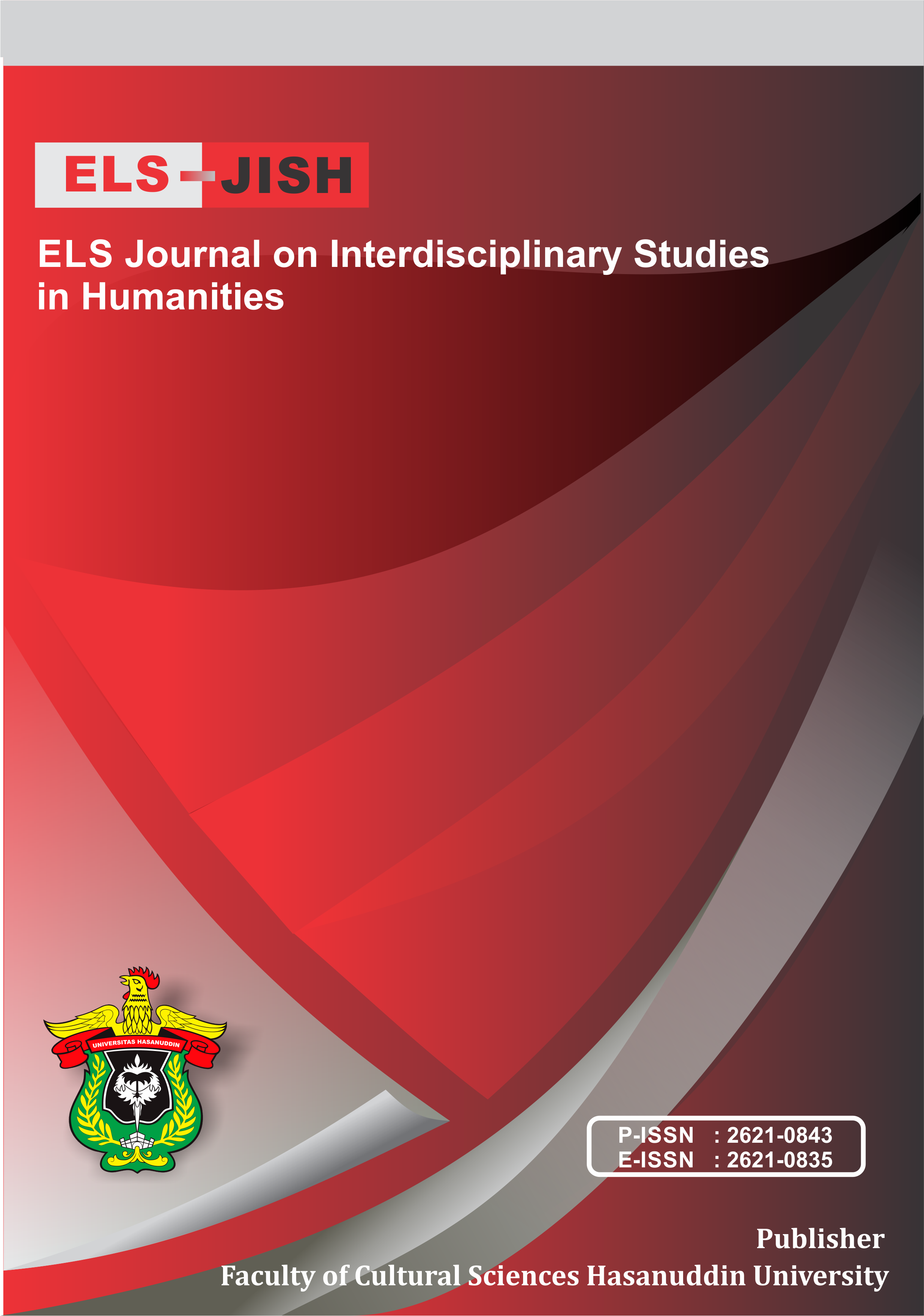The Effectiveness of Think-Pair-Share Strategy on Improving Visually Impaired Students’ Speaking Skill at SLB-A Yapti Makassar
DOI:
https://doi.org/10.34050/elsjish.v4i2.14016Keywords:
Effectiveness, Think-pair Share, Visual Impairment, Speaking, TPSAbstract
This study aimed to determine whether or not using the Think pair-share strategy could enhance students' speaking performance with visual impairments Grade XI of SLB-A Yapti Makassar in the academic year of 2020/ 202. This study was pre-experimental research in which the TPS strategy treated only one class. The data were qualitative and quantitative. The qualitative data were obtained by observing the teaching and learning process during the implementation of the TPS strategy and interviewing the students about this strategy. Meanwhile, the quantitative data were gained by assessing the students’ speaking skills through the pre-test and post-test. The instruments for collecting the data were the speaking rubric, observation guidelines, and interview guidelines. The results showed that the TPS strategy effectively improved the students’ speaking skills of visually impaired students. There are different significant scores on the speaking performance of students on pretest and posttest. The frequency and percentage of student scores in specific categories indicating post-test results are higher than pre-test results. Nonetheless, the TPS strategy also has the drawbacks where it was very time consuming during the implementation since students need to be dealt with the given lesson and the screen reader.Downloads
References
Altun, S. (2015). The effect of cooperative learning on students’ achievement and views on the science and technology course. International Electronic Journal of Elementary Education, 7(3), 451-468.
Aswad, M., Rahman, F., Said, I. M., Hamuddin, B., & Nurchalis, N. F. (2019). A Software to Increase English Learning Outcomes: An Acceleration Model of English as the Second Language. The Asian EFL Journal, 26(6.2), 2019.
Awofala, A. (2012). Cypriot Journal of Educational Sciences. Sciences, 7(1), 33–44. Bratt, C. (2008). The jigsaw classroom under test: No effect on intergroup relations evident.
Bratt, C. (2008). The jigsaw classroom under test: No effect on intergroup relations evident.
Depdiknas. 2006. STANDAR ISI. Jakarta: Depdiknas
In Reply: BEHAVIOUR THERAPY. (1965). In The British Journal of Psychiatry (Vol. 111, pp.1009–1010). https://doi.org/10.1192/bjp.111.479.1009-a
Journal oCommunity & Applied Social Psychology, 18(5), 403-419. doi.org/10.1002/casp.946
Johnson, D. W., Johnson, R. T., & Smith, K. A. (2014). Cooperative Learning: Improving University Instruction by Basing Practice on Validated Theory. Journal of Excellence in College Teaching, 25(January 2015), 85–118.
Junaidi, J., Hamuddin, B., Simangunsong, W., Rahman, F., & Derin, T. (2020). ICT usage in teaching English in Pekanbaru: Exploring junior high school teachers’ problems. International Journal of Advanced Science and Technology, 29(3), 5052-5063.
Kagan, S. (1994). Cooperative Learning. San Clemente: Kagan Publications. ------------. (2001). Cooperative Learning structures can increase studentsachievements. Retrived on August 22, 2017 From https://www.kaganonline.com/free_articles/research_and_rationale/311/C ooperative-Learning-Structures-Can-Increase-Student-Achievement
Lie, A. (2002). Cooperative learning: mempraktikkan cooperative learning di ruang ruang kelas. Jakarta: PT. Gramedia
Lyman, F. (1981). The Responsive Classroom Discussion. In A. S. Anderson (Ed.), Mainstreaming Digest (pp. 109-113). College Park, MD: University of Maryland College of Education.
Magal, S , K (2007). Educating Exceptional Children: An introduction to Special Education. New Delhi, Prentice-Hall of India Private Ltd.
Rahman, F. (2018). The Constraints of Foreign Learners in Reading English Literary Works: A Case Study at Hasanuddin University. Journal of Arts and Humanities, 7(2), 01-12.
Rao, P.S., 2019. The importance of speaking skills in English classrooms. Alford Council of International English & Literature Journal (ACIELJ), 2(2), pp.6-18.
Ritonga, S. N. A., Nasmilah, N., & Rahman, F. (2020). The Effect Of Motivation And Anxiety On Students’ Speaking Performance: A Study At Dayanu Ikhsanuddin University. ELS Journal on Interdisciplinary Studies in Humanities, 3(2), 198-213.
Slavin, R. E. (1980b). Cooperative learning. Review of Educational Research, 50(2), 315-342. https://doi.org/10.2307/1170149
Slavin, R. E. (1983). When does cooperative learning increase student achievement? Psychological Bulletin, 94(3), 429-445. doi.org/10.1037//0033-2909.94.3.429
Slavin, R. E. (2014). Cooperative learning and academic achievement: Why does groupwork work? Anales De Psicologia, 30, 785-791. doi.org/10.6018/analesps.30.3.201201nd
Sanjani, D. A., (2015). Improving students’ speaking ability using think-pairshare of cooperative learning for the 8th grade students of MTsN Karangmojo in the Academic Year of 2014/2015. (Published Doctoral Dissertation). Yogyakarta State University
Weda, S., Atmowardoyo, H., Rahman, F., Said, M. M., & Sakti, A. E. F. (2021). Factors Affecting Students' Willingness to Communicate in EFL Classroom at Higher Institution in Indonesia. International Journal of Instruction, 14(2), 719-734.
Downloads
Published
How to Cite
Issue
Section
License
Copyright (c) 2021 Rahmat J, Abidin Pammu, Ria Jubhari

This work is licensed under a Creative Commons Attribution-NonCommercial-ShareAlike 4.0 International License.

















